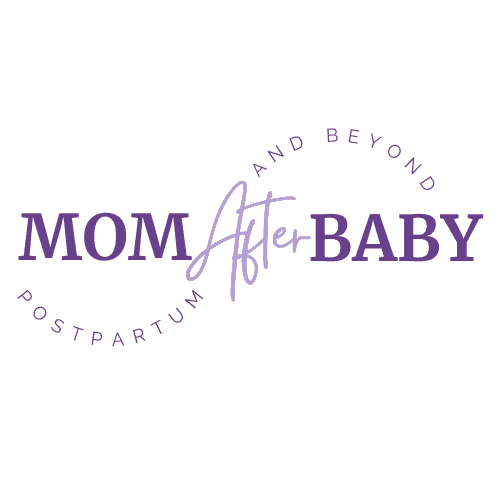Cool Moms Don’t Sleep: 10 Tips for Exhausted New Moms
This post may contain affiliate links that I may receive a commission from if you click & buy. In addition, the information on this site is NOT intended to be medical advice. See my full policy for more information.
The joy of welcoming a new baby into the family is unlike any other, but for many new moms (myself included), the sleepless nights that come with it can be challenging to navigate. The lack of sleep, combined with the physical and emotional demands of caring for a newborn, often leaves new mothers feeling exhausted and drained. It’s as they say, cool moms don’t sleep, but trust me, they wish they could! If you find yourself in the midst of postpartum exhaustion, the good news is that there are practical steps you can take to help restore your energy levels and feel more like yourself again. In this article, we’ll explore 10 actionable tips for exhausted new moms, offering friendly advice and support!
10 Tips for Exhausted New Moms
Sleep deprivation, though we all expect to get less sleep after having a baby, can cause some serious problems for parents. This 2019 study proves it by saying, “mothers who experienced shorter, later, and more variable sleep experienced higher levels of stress“. But do we really need studies and research to prove it?
Think about the last time you were running on less than 4 hours of sleep OR hourly-interrupted sleep all night long. Did you feel good? Did you feel like you were ready to take on any challenges during your day? I can tell you right now that I get mood swings, I don’t feel good, nor do I want to take on different things during the day when I’m running on literal empty. New mom exhaustion is real, and we need to start helping moms navigate it more practically.
So, here are those 10 tips I promised you. Because yeah, cool moms don’t sleep, but they’re about to!
1. Set Up a Calm Sleep Environment.
It might not seem obvious, but it’s essential to establish a designated sleep space that promotes relaxation. Now, I know you likely have a calm sleep environment for your baby, but what about you? Throw together some comfortable bedding, soft pillows, and blackout curtains to create a cozy atmosphere conducive to restful sleep.
Minimizing external stimuli is equally important; mothers can use white noise machines to drown out ambient sounds or consider earplugs to shield against sudden noises that might disrupt their sleep (however, if you’re home alone, you’ll want to ditch the earplugs so that you don’t miss baby’s cries if they wake up overnight). And if your newborn is bunking in your room, they’ll appreciate the calm environment too and it’ll likely contribute to them being a good sleeper as they grow.
2. Hydrate and Nourish Your Body
New moms frequently underestimate the impact of a balanced diet on their energy levels. No, I’m not saying you can’t enjoy a good food splurge here and there — sometimes it’s just what the soul needs.
However, try to maintain a balanced diet with adequate amounts of protein, fiber, and micronutrients. You can also stay on top of your nutritional needs by drinking plenty of fluids, including breastfeeding-friendly teas like chamomile. Consider taking research-backed prenatal vitamins and eating home-cooked meals rich in essential fatty acids to support your overall health and milk production.
Lastly, don’t skip on your liquids! It can be easy to get caught up in caring for your baby and not even stop to grab a sip of water, but make it a priority. Grab your favorite cup and keep it close by so you don’t forget to take a sip every hour.
3. Get Fresh Air and Light Exercise
Getting outside and taking in the fresh air can be really, refreshing. Taking a short walk with your newborn or do some light exercises (like these from Mutu System) and you just might find those negative feelings from exhaustion floating away. Fresh air and movement can alleviate feelings of fatigue, boost your mood, and contribute to a better overall sense of well-being during the early days of postpartum recovery.
*Note — you should also focus on resting and following your doctor or midwife’s recovery instructions to get plenty of rest as your body heals.
4. Establish a Sleep Routine
While the sleep cycle of a new baby can be unpredictable, establishing a routine can help signal to both you and your baby that it’s time to wind down. Create a calming environment, and stick to a few short activities before bedtime. A common bedtime routine with a newborn might look like:
- Giving baby a warm bath and changing them into their PJs
- Dim the lights and start the baby’s last feeding before bedtime.
- Burp baby and read them a short story or hold them while humming a song.
- Once your baby is drowsy, set them down to sleep.
Be sure to keep your bedtime routine consistent and similar each and every day to build familiarity with your baby. Get rid of any unrealistic expectations of them sleeping through the night as a newborn, but hold hope for the day that comes once they finally do.
5. Consider a Postpartum Doula
Enlisting the help of a postpartum doula can provide invaluable support during the challenging early months of motherhood. Professionals like a doula can offer guidance on baby care, emotional support, and assistance with household chores, allowing you to ensure you’re getting enough sleep, and focus on your well-being and baby’s needs.
In fact, I haven’t met one mom to date who has hired a postpartum doula who’s said it wasn’t the best thing for them to do.
6. Manage Stress and Expectations
Recognize the importance of managing stress because let me tell you, it sure can contribute to your lack of energy in those early days. It’s okay if the house is not perfectly tidy, or if you need extra help.
Ditch the unrealistic expectations and put your mental health first. Chronic stress can contribute to feelings of exhaustion, so make self-care a priority and communicate openly with your partner or loved ones about your needs.
7. Screen Time and Sleep Hygiene
Let’s be honest with ourselves, we’re always on our smartphones. Between mindless scrolling and yearning for constant connectivity online, we must be mindful of our screen time, especially during the middle of the night. The blue light emitted by screens can interfere with your sleep, so create a bedtime routine that involves winding down without electronic devices.
Now, as a breastfeeding mom, I know this can be hard to do. Especially when you’re awake in the middle of the night taking care of your baby and feeding them while trying to keep your eyes open — so, you resort to using your phone. I get it. If you have a window of time to get some solid sleep in, do your best to minimize any phone activity right before or during. Get that sleep girl!
8. Consider Your Hormonal Changes
The postpartum period involves significant hormonal changes, and imbalances that can contribute to feeling exhausted, fatigue, and sometimes, depression. If you’re experiencing severe symptoms that are worsening or impacting your daily life, consider consulting with your healthcare provider or telling someone right away.
Blood tests can identify any potential issues such as thyroid hormone imbalances or nutritional deficiencies that may be affecting your energy levels. A thorough postnatal mental health screening can help decipher the difference between a Perinatal Mood and Anxiety Disorder and simply just sleep deprivation, so please, don’t ignore these signs and symptoms.
9. Build a Support System
Now, let’s tap into reality for a second, being a new mom means you are likely your baby’s entire world. They need you to feed them. They rely on you to snuggle them. They cry when you leave the room. All of this adds to the societal norm that caring for infants is ‘mom’s work’. And sure, you may be doing the bulk of it, but it’s crucial to surround yourself with good friends and family who understand the rigors of labor and the challenges of new parenthood so that they can help you catch a break.
Imagine, having a reliable support system that can provide emotional and practical assistance. Thus, making the journey through new motherhood more manageable, even if it’s watching the baby for a short period of time while you simply, take a nap.
10. Embrace “Me Time”
While caring for your new baby is a top priority, don’t forget to carve out some time for yourself. Whether it’s a warm shower, a cup of some delicious chamomile tea, or slipping into comfortable yoga pants, finding small moments for self-care can make a significant difference in combating feelings of emotional exhaustion. You’re figuratively refilling your cup. Need more ideas? This list of self-care tips for moms is full of practical ways to prioritize your emotional health
Remember, the journey through new motherhood is filled with ups and downs, and it’s perfectly normal to feel a range of emotions. It’s even more normal to feel tired because newborn babies aren’t great sleepers (no offense to those adorable little bundle of joys), but they really do bring a whole new set of challenges into our lives. By implementing these tips, you can gradually ease the strain of postpartum exhaustion and create a more balanced and fulfilling experience for yourself and your new family.
So, maybe cool moms do sleep after all.



